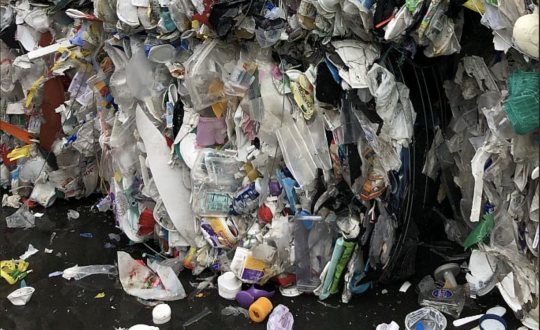Plastics: Reduce, Reuse, Recycle and Research

Online
Thu, Mar 7, 5:00 am
– 6:00 am
Admission Fees:
none
Registration Links:
Register for this event
Single-use, disposable plastics are a problem. We don’t know what we can recycle and what we can’t. We see the impact in our oceans and our streams and we want to be responsible consumers. Learn from our experts about ways you can help reduce the problem. Read more below, and watch recorded event here: Plastics: Reduce, Reuse, Recycle and Research, March 7, 2024
Presenters
- Sloane Pagal, Zero Waste Program Manager at Zero Waste Sonoma, a joint powers governmental agency designed to encourage personal action in waste reduction
- Marie Kneemeyer, Public Education Manager for Recology of Sonoma Marin
- Michael Cohen, Ph.D., Organic Materials Management and Agri-Food Systems Advisor, UC Cooperative Extension; Professor Emeritus, Sonoma State University
Details
Take a quick inventory in your refrigerator. How many plastic single-use, disposable containers or bags do you find? Yogurt, catsup, cream cheese. I have 17 and I am guessing some of you have more. Why does that matter? Who cares? Can’t you just recycle those containers?
Well, we all need to care. Plastic does not break down, decompose or compost. It merely breaks up into smaller and smaller pieces called microplastics. Those pieces, along with other debris, make up the Great Pacific Garbage Patch that we have all heard so much about. Why is plastic so ubiquitous? It is durable, inexpensive and malleable, making it attractive to use in a wide range of consumer and industrial products.
As far as recycling, certain plastics are more recyclable than others. How can you tell which is which? And what happens to those items when they are recycled? And wow, there is new compostable foodware that’s green and earth friendly. But does it actually get composted?
Bottom line? What policies are in place and being considered to tackle these significant problems? And what can you, as an individual, do to help? These questions will be addressed by our panel of experts. They will delve into the problem, the frustrations around recycling, policy/legislative possibilities and relevant research underway at SSU.
Logistics
No previous experience or knowledge is required. This event is recommended for ages 14 and up. Zoom meeting details will be sent to you upon registration.
How to Sign Up
Register at the link below. Each participant should register separately. Registration is free.
About the Center
Sonoma State University’s Center for Environmental Inquiry empowers university students to work with community members on the environmental challenges of the North Bay. Our mission is to create an engaged and environmentally ready society, one where all people have the skills to find solutions to the challenges facing our earth. SSU Preserves are open to everyone engaged in education or research. Reservations are required.

